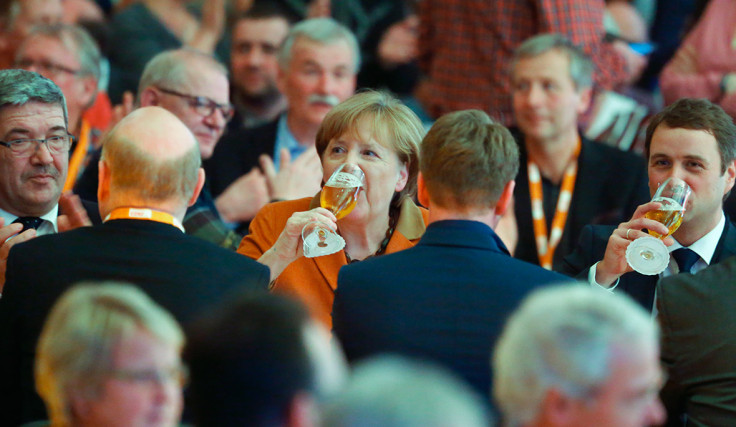Crucial state poll puts Angela Merkel in pole position to win fourth German election
Polls in Germany's largest state have narrowed in recent weeks.

With exactly five months to go until the general election, the incumbent German chancellor Angela Merkel has cemented a lead in the polls ahead of critical state votes in May.
Polls across Germany have narrowed since the start of the year ever since the former EU President Martin Schulz was announced as the candidate for the centre-left SPD.
For the first time in years, the SPD were ahead of Merkel's governing CDU in some polls between early February and early April.
But for much of the past few weeks, the CDU have clawed back in front and have solidified a small lead which will be crucial with two state elections coming up next month.
And an opinion poll from Germany's most populous state has raised eyebrows in all directions.
At the end of March, the CDU easily won a small regional vote in Saarland, in a race which many had expected to be tighter, concerning some members of the SPD.
On the 7 May, the medium-sized state of Schleswig-Holstein will go to the polls. The SPD currently govern the state, despite getting less votes than the CDU in 2012 after forming a coalition to block the centre-right party.
Current polls suggest that the SPD may be able to improve on their result from five years ago and maintain power in the state. But both Saarland and Schleswig-Holstein are trumped in all areas by North Rhine-Westphalia.
Germany's largest state by population will be seen as the most important indicator as to which way the national vote may go when the region votes on the 14 May.
An opinion poll released on Sunday by Infratest put the CDU on their highest standing since December 2015, drawing them level with the SPD on 34% who currently govern the state. It was also the worst poll for the SPD since the start of the year in North Rhine-Westphalia.
The SPD currently govern on a large majority in the state so if the CDU manage to draw level, come close or even win, then the SPD alarm bells will be ringing.
The state is viewed by many as a mini general election due to its diverse economy which contains vast rural areas as well as several large cities including Cologne, Dortmund and Dusseldorf.
The German election is scheduled to be the last major European vote after national elections in the Netherlands, France and Britain.
The right-wing AFD were set to be a major threat to the mainstream parties, but recent infighting has seen them dip in the polls, this at the same time that the number of migrants entering Germany has fallen.
The election on the 24 September will be closely watched with the future of the European union at stake.
© Copyright IBTimes 2025. All rights reserved.





















